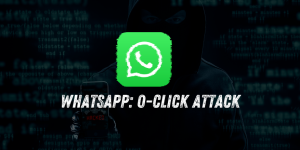Threat Actors Exploit Microsoft Office Vulnerability to Spread Agent Tesla Malware

Reading Time: 3 Minutes
Threat actors have been observed exploiting an old Microsoft Office vulnerability, known as CVE-2017-11882, to propagate the Agent Tesla malware. This vulnerability, with a CVSS score of 7.8, has become a focal point for phishing campaigns aimed at spreading the spyware, which is designed to clandestinely collect keystrokes, system clipboard data, screenshots, and credentials from infected systems.
First discovered by experts in June 2018, Agent Tesla has been in circulation since 2014, initially distributed through a malicious Microsoft Word document containing an auto-executable VBA Macro. Once users enable the macro, the spyware is installed on their machines, allowing threat actors to conduct covert surveillance and data theft.
See Also: So, you want to be a hacker?
Offensive Security, Bug Bounty Courses
Recent phishing campaigns have seen attackers employing spam messages with keywords like “orders” and “invoices” to entice recipients into opening weaponized Excel documents, furthering the spread of the malware.
The CVE-2017-11882 flaw, a memory-corruption issue affecting all versions of Microsoft Office released in the past 17 years, including the latest Microsoft Office 365, poses a significant risk. This vulnerability can be triggered on all versions of the Windows operating system, including the latest Microsoft Windows 10 Creators Update. Specifically, the flaw affects the MS Office component EQNEDT32.EXE, responsible for the insertion and editing of equations in documents, and could be exploited by threat actors to execute malicious code in the context of the logged-in user.
Trending: Recon Tool: PassDetective
Are u a security researcher? Or a company that writes articles or write ups about Cyber Security, Offensive Security (related to information security in general) that match with our specific audience and is worth sharing?
If you want to express your idea in an article contact us here for a quote: [email protected]
Source: securityaffairs.com














